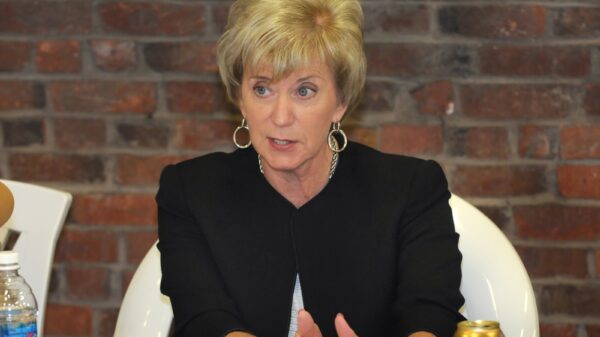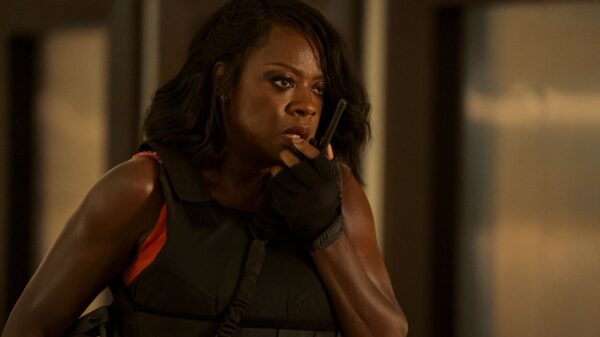
Another historic Emmy Awards cycle has concluded, marking yet another notable year in television history. This year highlighted the continued rise of streaming, reminding us that the traditional film and TV model is unlikely to return.
In contrast to the 2021 Emmys that earned the hashtag #EmmysSoWhite on social media, this year the academy not only nominated but awarded an array of creatives. This season’s nominations and awards have set new standards for diversity in storytelling.
The awards showcased a plethora of variety with queer and transgender representation, a significant amount of diversity that extends beyond a handful of people of color winners and nominees. The representation seen in moments like these inspires others to walk the path of artistry with people who look like them.
A musical theater major, Kennedi McClure, recalled some Academy Award wins that inspired her as an actress.
Hattie McDaniel, the first African American woman to win an Oscar for Best Supporting Actress in 1940 for “Gone With the Wind,” inspired McClure as her Oscar is displayed at the Chadwick A. Boseman College of Fine Arts. Halle Berry, who won Best Actress in a Leading Role in 2002 for “Monster’s Ball,” also came to mind.
“They inspire me because they paved the way for me to be where I am today and for me to be able to achieve what I am hoping to do in the future,” McClure said.
This year’s Emmys proved that remarkable and inspiring talent comes from all corners of the globe and that the standard for good storytelling rests with major corporations like Disney, Apple, and Warner Bros. Discovery.
Between Hulu, FX, and Disney Entertainment at large, Walt. Disney Company racked up a record high of 60 wins, from shows including “The Bear,” “Shōgun,” “Only Murders in The Building,” “Fargo” and more.
“The Bear” and “Shōgun” broke records with the most wins for a comedy series in a season (11) and the most Emmy wins for a single season (18), respectively. The wins also marked the first Latina actress, Liza Colón-Zayas, to win outstanding supporting actress in a comedy series, and Hiroyuki Sanada and Anna Sawai of “Shōgun” becoming the first Japanese actors and actors of Asian descent to win their categories as well.
Disney’s competitors took to the podium too, with Apple TV and Netflix earning awards for series like “Baby Reindeer” or “The Morning Show.”
Each of these historic wins highlights Disney’s commitment to its diverse customer base. With its numerous acquisitions and a vast network of entertainment brands like ESPN, FX and ABC, Disney continues to dominate talent and storytelling.
Disney, and other production and streaming platforms, have a grip on their stories from start to finish, exemplifying how the streaming industry has reached a new point.
“We’re in an entirely new paradigm as relates to the distribution method and we are finally at a place where broadband and the delivery mechanism allow for the instantaneous stream and control of the entire supply chains,” said Professor Marcus Johnson, musician and professor of Entertainment Law at Howard University.
Many of this year’s winners followed the “binge-drop” practice of releasing an entire season at once, a trend that became popular as shows moved away from the traditional linear model of 24 weekly episodes to 8-10 episodes all at once.
Johnson, a Georgetown law graduate, spoke about the domination of Disney and other companies in the industry, and specifically about how their “quasi” sweep of the Emmys should draw attention toward the direction of media distribution.
“I think that what it signifies is that a company can be oligopolistic [favoring a market that’s shared by a small number of producers or sellers] at the bare minimum and gain characteristics of a monopoly very fast,” Johnson said.”I think that’s exactly what that demonstrates where the future is headed.”
With the creation of Disney+ and other streaming branches developing over the past few years to reach new audiences, box office releases are being put on stream right away, creating streaming options strictly for certain franchises and the various “bundles” one can have under a Disney+ subscription.
Due to a previously unfinished deal, weeks ago, DirecTV didn’t provide ESPN, ABC and Disney Channel to their clients. In the newest deal struck with DirecTV, Disney provides a new offer for their users and other linear TV users.
According to The Verge, “DirecTV will offer packages that include Disney Plus, Hulu, and ESPN Plus as bundles or a la carte options. It’ll also include ‘Disney’s upcoming ESPN flagship direct-to-consumer service’ when it launches, for no extra cost.”
This pandering to streaming by production and cable service companies is marking the rise of an already-known shift in entertainment media. It is not in everyone’s wheelhouse to pay attention to the changes in these practices, especially since for most, it is just about the content. However, we must keep up to date with the changes being made in the way we consume it as the media landscape never rests.
Copy edited by Anijah Franklin
































